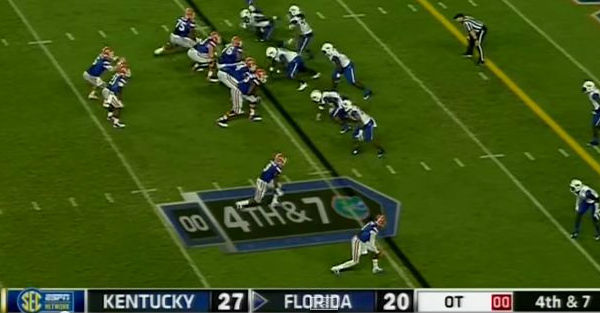The clock struck zero and the ball hadn't been snapped yet. Seems like it should be a delay of game call, right? Well, that didn't happen.
Jeff Driskel, on 4th and 7 in the first overtime, took the snap and threw a fade route to Demarcus Robinson in the corner of the endzone to keep Florida in the game.
You can clearly see that the play didn't happen before the clocks showed double zeros. But that doesn't matter. Here's the SEC's ruling on the play:
"At the request of the University of Kentucky, consistent with SEC protocol, the conference office reviewed the fourth down play in the first overtime of the Kentucky-Florida game and has determined the officials applied the proper mechanics and guidelines that are in place to determine when a flag should be thrown for delay of game. The back judge is responsible for delay of game calls. The procedure for the back judge is for his eyes to stay on the clock when it nears zero. When the clock hits zero, he immediately looks from the clock to the ball. If the ball is moving, there is no delay of game. If the ball is stationary, a delay of game penalty is called."
So, the next time someone says "Florida cheated" or "Kentucky got robbed" you can show them this statement and just walk away.
